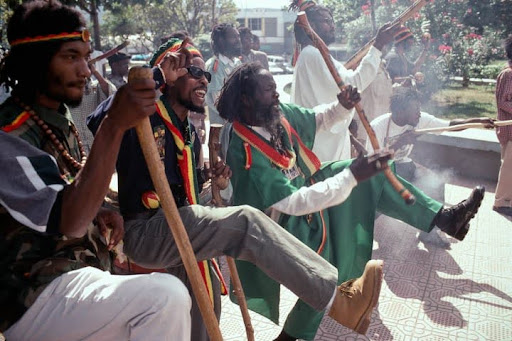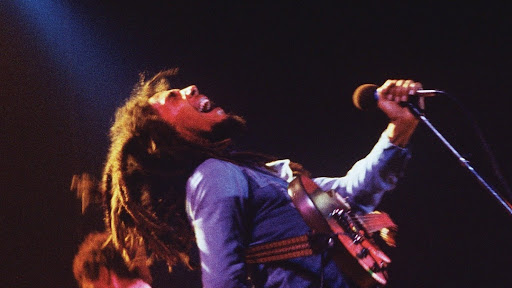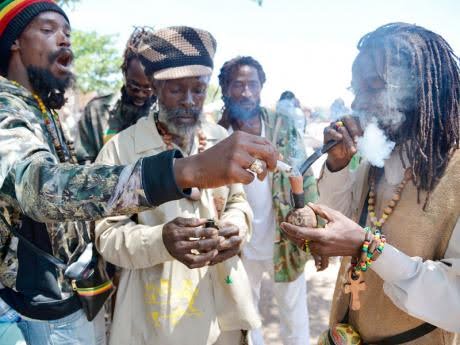Rastafarianism: Faith or Religion?

I have often, as a Jamaican, heard all the perceptions and ideologies people have about Rastafarianism. Some think it’s strictly based on smoking marijuana, others think it’s about flashing those thick natty dreadlocks, while others think it’s just merely a way of life. But what exactly is Rastafarianism?
In the 18th century, enslaved black people in the Americas began envisioning an ideal Africa where they would someday be repatriated. This gave rise to the Rastafarian movement which is deeply interconnected and entrenched in Ethiopianism, a religious and political movement that symbolizes freedom in the modern colonial Era. Rastafarianism, however, began taking root in Jamaica in the 1930s through the teachings of a Jamaican political leader Marcus Mosiah Garvey. The core embodiment and belief of the movement was strengthened when Garvey reportedly prophesied to his followers that they should look to Africa where a great black King shall be crowned and called their redeemer.
Many believe Garvey’s prophecy was somehow fulfilled when on November 2, 1930 Ras Tafari Makonnen was crowned Emperor Haile Selassie I of Ethiopia. Haile Selassie was believed to be a descendant of King Solomon and Queen of Sheba and assumed the titles King of Kings, Lord of Lords and the conquering lion of the tribe of Judah. To this day, a Jamaican rasta when greeted, will respond by saying ‘Jah Rastafari: King of Kings, Lord of Lords, the conquering Lion of the tribe of Judah.
The late, legendary Bob Marley became the face of the Rastafarian movement in the early 1970s when his career catapulted to greatness in and outside of Jamaica. The popular reggae musician would end songs with the words, “Jah Rastafari” which was a testament of his devotion to the word Jah and its association to Rastafarianism. Peace and love, the very essence of the movement, was embodied in the way he lived and through his plethora of songs. For example, in his song titled, “No More Trouble” it says, “No more war, I say, speak happiness, sad enough without your wars, come on and speak love”. The Rastafariasm movement became more known both locally and internationally due to Marley’s meteoric rise in popularity.

Photo Credit Jam Base
Like most religious movements, Rastafarians are expected to have and foster a personal relationship with Jah. As such, followers strongly believe that marijuana usage is a biblical directive according to scriptural passages, which states that the “holy herb” induces a meditative state and brings them closer to the divine. Far from what persons outside the religion think when they see a rastaman chanting Jah, and smoking marijuana. In fact most people might think this is the Primary function and core of Rastafarianism when it is actually a practice associated with the religion, and its faith.
The smoking of marijuana has been practiced from as early as the pinnacle commune in the 1940s. The specific kind of marijuana smoked by Rastafarians is called ganja or the senseh weed. This sacred practice is seen by Rastas as a way to assert and promote their own authentic form of freedom, while diminishing the importance of colonialism which was somehow rooted in the Jamaican culture by way of the British. It is seen as a practice that allows them to depart from what they call the ‘Babylon system’. In the mind of a Rasta, the Babylon system is anything that is the embodiment of evil or any form of idolism.

Photo Credit Jamaica Gleaner
In Jamaica ganja smoking is still very much illegal although in recent times the Jamaican Government decriminalized small amounts for the religious practice of the Rastafarians. It is their belief that ganja somehow enhances their spirituality, reduces stress, produces visions, brings unification and communal feelings and gives peace to those who are otherwise deprived. The practice has become symbolically significant to both faith and religion, and is primarily viewed as a natural product or herb, not a drug. For the Rastas, the smoking of ganja is more ritualistic and the freedom to practice this religious rite.
However, during the 20th century Rastafarians were viewed as criminals merely because of ganja smoking. The authorities would arrest and even imprison Rastafarians for freely smoking marijuana and growing the herb. This has changed overtime with them firmly speaking out on the oppressive systems that prevent them from practicing their beliefs in accordance with their religion. As such,as stated earlier, the Government has decriminalized the smoking of small amounts of ganja by Rastafarians for religious purposes.
The Rastafarians also have a structured and strict diet that mainly consists of Ital and/or natural foods. Ital foods are mostly fruits and vegetables which are grown without the use of fertilizers, what we today would call organic foods. They are forbidden from consuming alcoholic beverages, milk, coffee, salt and oils produced from animals. Vegetarianism is highly preferred and most Rastafarians are vegetarians. Those who prefer eating meat are not allowed to eat pork as it is taboo and associated with slave food. They also avoid shellfish, scaleless fish or snails, and fish over 12 inches long. The diet of the Rastafarians are similar to that of the Jewish Kosher diet as they both adhere to the same strict Leviticus dietary and hygienic rules. This makes it very difficult for them to eat food from outside sources and therefore rastas are known to grow and prepare their own food for consumption.
How can we ever speak about Rastafarianism without mention of their dreadlocks? The principle of having a naturalistic lifestyle is also followed in their personal care as well. They never comb or brush their hair which overtime forms dreadlocks. They wash the dreadlocks with only water as they are not allowed to use any chemically processed items such as shampoo. They follow the instructions of the Old Testament which prohibits the trimming and shaving of the head. Women are advised to go natural, never wearing makeup, using chemicals in the hair or wear clothing that would be deemed immodest. In keeping with the Old Testament prohibitions, they cannot wear any form of tattoos or and cutting of the flesh. It might sound or seem foolish to those outside the Faith but women are not allowed to cook for their husbands during menstruation. They firmly believe that when a woman is having her menstrual cycle they are unclean and should therefore not cook or even sleep in the same bed as their spouses during this period.
The Jamaican tourism sector is the largest generator of foreign exchange. It greatly contributes to the country’s GDP and is a major source of employment for locals. Most hold the position that Rastafarians would not embrace or have anything to do with tourism because their beliefs shun colonialism. However, this is not the case as they greatly participate in the Jamaican tourist industry as Mucusians, craft vendors, informal guides, roadside chefs of Ital food. Additionally, Many tourists from across the world who have a genuine love for Bob Marley visit the country to seek and immerse themselves in the very essence of the Rasafatrian culture.The Rastafari indigenous village located in Montego Bay is one such place that is commonly visited by tourists to get a genuine feel of the music, the craft, cuisine, and dance. The iconic Bob Marley Museum in Kingston, Jamaica displays a variety of the musician’s personal treasures such as his records and his guitar. The property also features an 80 seat theater, a gallery,a record shop and a gift shop where you can purchase Marley’s memorabilia. You can also visit the School of Vision, Rasta Camp And Guest house, a Rastafarian community 3,000 feet in the vast blue mountains or Bobo Hill in Bull Bay where you’re able to enjoy a small space adorned with images and items relating to the Rastafarian faith
So, is it faith or religion? Rastafarians strongly believe in Jah and live their lives to emulate the very principles of the Old Testament laws. They are bound to a certain set of beliefs, practices and systems that relate to the faith and worship of a supernatural being. For the Rastafarians, that supernatural being is Jah. Like most religious institutions and movements, the Rastafarians practice peace, love and unity; a message that was voiced and spread through Bob Marley’s music. The very core of their belief is crafted in the song, “War”, which proclaims, “Until the philosophy which hold one race superior and another inferior, Is finally and permanently discredited and abandoned, well, everywhere is war”. Thus, it is my opinion, based on research and observation, that Rastafarianism, like Christianity, is both faith and religion.
Growing up in Jamaica, I have always had great respect for Rastafarians because they always firmly held and adhered to their beliefs. In my opinion, they are among a small group of people who preach love and peace, and actually practice it. Unlike others, smoking marijuana is and has always been a religious rite performed by rastas. It isn’t merely for recreational purposes but a ritual that when practiced, brings a certain semblance of calmness that is necessary for deep meditation. Rastafarians are very devoted to their religious belief and will more than likely adhere to the teachings and doctrines of Rastafarianism. I have always had great admiration for how firmly they stand in their faith and how devoted they are to their religion irrespective of others perception of them. In fact, I honestly believe some of the views that are and have been held about Rastafarians are simply false and are conceived out of ignorance. I highly recommend having an in depth discussion with one of them or just observe them in passing and you will truly see they are more than just dreadlocks smoking ganja for recreation.

